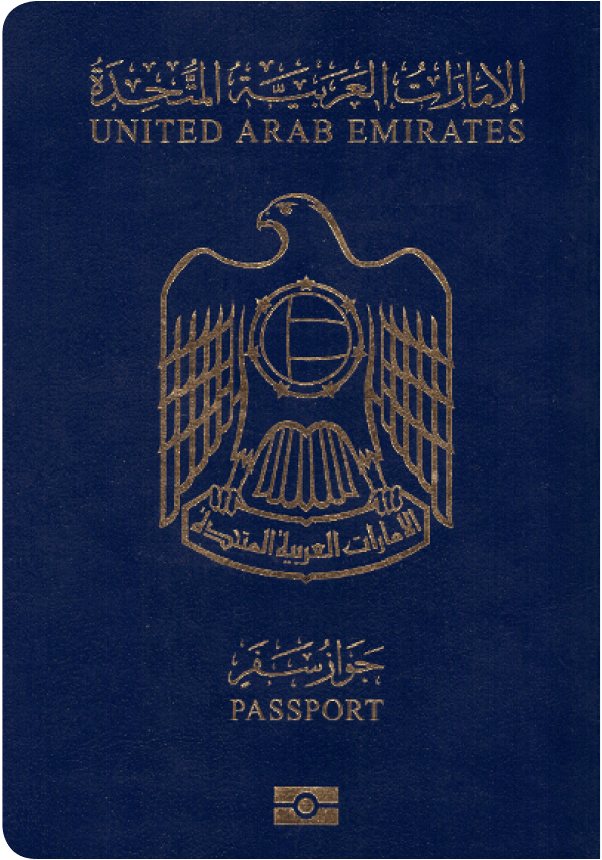Country Details
The United Arab Emirates (UAE) is a dynamic and rapidly developing country located in the Middle East. Here are five important facts about the UAE:
- Economic Powerhouse: The UAE has emerged as a major global economic hub. It is known for its thriving business environment, particularly in sectors such as finance, real estate, tourism, and energy. The UAE's economy is highly diversified, with Dubai and Abu Dhabi being major centers for international trade and investment. The country's strategic location, state-of-the-art infrastructure, and business-friendly policies have attracted multinational corporations and entrepreneurs from around the world.
- Cultural Diversity: The UAE is home to a rich tapestry of cultures and nationalities. While the UAE's population is predominantly composed of expatriates, the local Emirati culture is deeply rooted in traditions and Islamic values. The country embraces religious tolerance and offers a vibrant mix of cultural experiences, ranging from traditional Emirati heritage to a wide array of international cuisines, arts, and entertainment.
- Architectural Marvels: The UAE is renowned for its impressive skyline and iconic architectural landmarks. The Burj Khalifa in Dubai stands as the tallest building in the world, symbolizing the country's ambition and innovation. Other notable architectural marvels include the Palm Jumeirah, an artificial archipelago shaped like a palm tree, and the Sheikh Zayed Grand Mosque in Abu Dhabi, one of the largest mosques in the world.
- Tourism and Entertainment: The UAE has become a popular tourist destination, offering a range of attractions and experiences. Dubai, in particular, is famous for its luxurious hotels, shopping malls, and entertainment options, including indoor ski slopes, water parks, and desert safaris. Abu Dhabi boasts world-class cultural institutions, such as the Louvre Abu Dhabi and the upcoming Guggenheim Abu Dhabi. The UAE also hosts major international events, including the Dubai Expo 2020.
- Visionary Leadership: The UAE's success can be attributed, in part, to its visionary leadership. The rulers of the seven emirates have focused on economic diversification, education, innovation, and sustainable development. Initiatives like the UAE Vision 2021 and the Abu Dhabi Economic Vision 2030 outline ambitious goals to build a knowledge-based economy, enhance social welfare, and protect the environment.
These facts highlight the UAE's remarkable transformation from a desert region to a global powerhouse. With its thriving economy, cultural vibrancy, architectural wonders, and visionary leadership, the UAE continues to attract attention and visitors from all corners of the world.
Immigration Details
Immigrating to the United Arab Emirates (UAE) can be done through various visa categories, such as employment visas, business visas, investment visas, real estate visas, study visas, and residency programs. Here is an overview of each option, including estimated timeframes, fees, and supporting documents:
- Employment Visas: To work in the UAE, you need a job offer from a UAE-based employer. The employer must sponsor your employment visa. The process includes obtaining a work permit and residency visa. The estimated timeframe to obtain an employment visa is around 2-4 weeks.
Supporting Documents:
- Valid passport with at least six months' validity
- Job offer letter
- Employment contract
- Educational certificates and qualifications
- Passport-sized photographs
- Medical fitness certificate
- Police clearance certificate (depending on the country of origin)
- Proof of health insurance coverage
Estimated Fees: Fees for employment visas include application fees, medical examination fees, visa stamping fees, and Emirates ID card fees. The costs can vary depending on the specific circumstances and type of employment.
- Business Visas: To establish a business in the UAE, you can apply for a business visa, also known as a trade license. The requirements and capital requirements differ based on the emirate and the legal form of the company.
Supporting Documents:
- Business plan
- Proof of sufficient funds for investment
- Passport copies of shareholders
- Tenancy contract for office space
- Memorandum of Association (MOA)
- Bank statements
- No-objection certificate from current sponsor (if applicable)
Estimated Fees: Fees for business visas include trade license fees, visa application fees, registration fees, and Emirates ID card fees. The costs can vary based on the emirate and legal structure of the company.
- Investment Visas: The UAE offers various investment visa options, including the Golden Visa program. The eligibility criteria and investment amounts depend on the specific program and can vary.
Supporting Documents:
- Proof of investment, such as property deeds, business ownership documents, or financial investments
- Valid passport
- Proof of sufficient funds
- Medical fitness certificate
- Police clearance certificate (depending on the country of origin)
- Proof of health insurance coverage
Estimated Fees: Fees for investment visas include application fees, visa stamping fees, Emirates ID card fees, and any additional costs associated with the specific investment.
- Real Estate Visas: Purchasing property in the UAE can also lead to residency. The minimum property value required for this option varies based on the emirate.
Supporting Documents:
- Property purchase documents
- Title deeds
- Valid passport
- Proof of sufficient funds
- Medical fitness certificate
- Police clearance certificate (depending on the country of origin)
- Proof of health insurance coverage
Estimated Fees: Fees for real estate visas include property registration fees, visa application fees, visa stamping fees, Emirates ID card fees, and any additional costs related to the property purchase.
- Study Visas: To study in the UAE, you need to be accepted into a recognized educational institution. The specific requirements and timeframe depend on the duration and level of study.
Supporting Documents:
- Acceptance letter from an educational institution
- Valid passport
- Proof of sufficient funds to cover tuition fees and living expenses
- Medical fitness certificate
- Police clearance certificate (depending on the country of origin)
- Proof of health insurance coverage
Estimated Fees: Fees for study visas include application fees, visa stamping fees, Emirates ID card fees, and any additional costs charged by the educational institution.
It's important to note that the UAE does not offer a direct path to citizenship for foreign nationals. Residency is typically granted for a specific period and is subject to renewal based on the visa category and compliance with UAE laws and regulations. The allocated timeframes and fees mentioned are estimates and may vary based on individual circumstances and changes in UAE immigration policies. It is advisable to consult with UAE immigration authorities or seek professional legal advice for accurate and up-to-date information.


Nariman Pourtalaei
September 16, 2023 at 2:43 pmFirst choice for global business